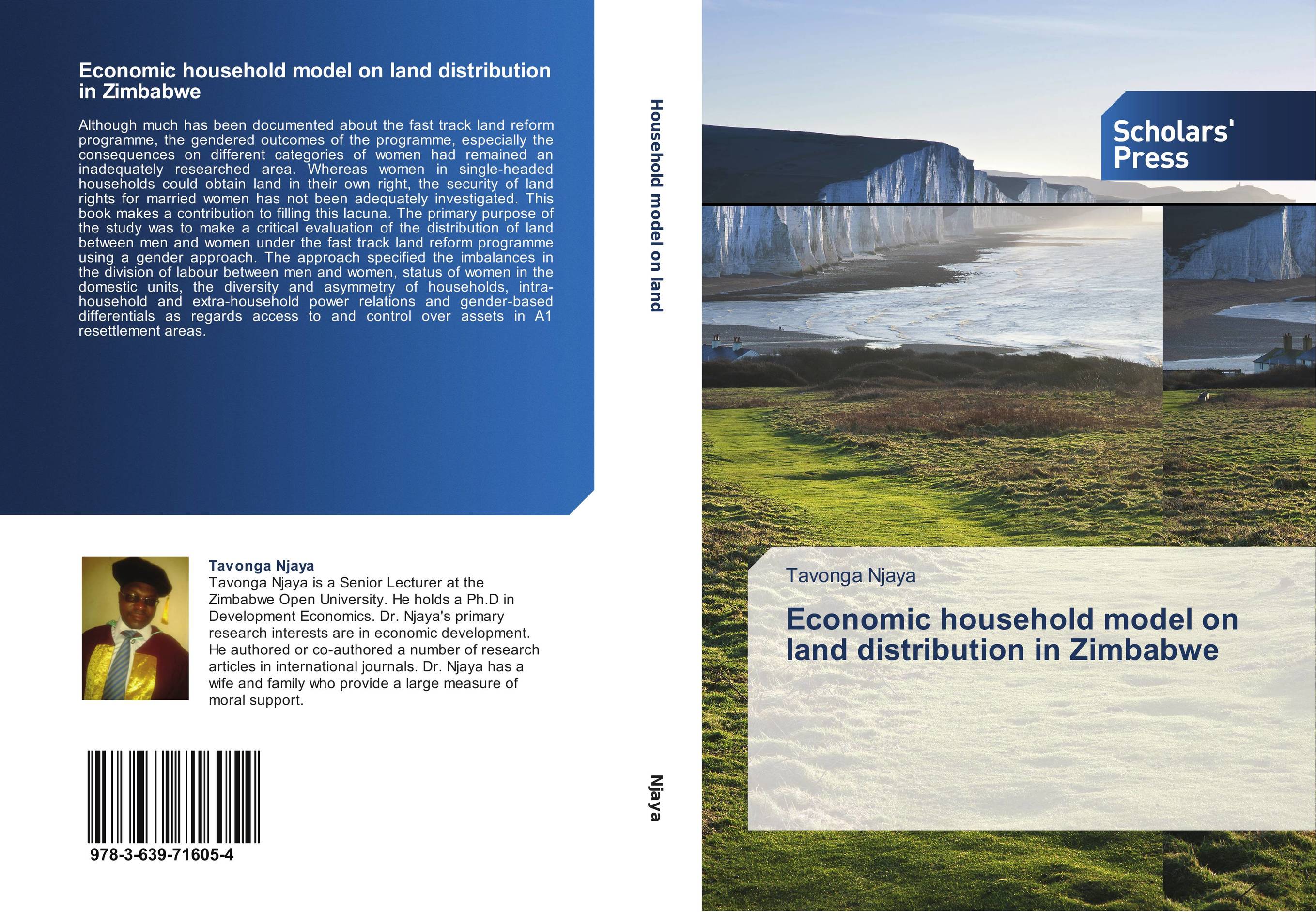| Поиск по каталогу |
|
(строгое соответствие)
|
- Профессиональная
- Научно-популярная
- Художественная
- Публицистика
- Детская
- Искусство
- Хобби, семья, дом
- Спорт
- Путеводители
- Блокноты, тетради, открытки
Economic household model on land distribution in Zimbabwe.

В наличии
| Местонахождение: Алматы | Состояние экземпляра: новый |

Бумажная
версия
версия
Автор: Tavonga Njaya
ISBN: 9783639716054
Год издания: 2014
Формат книги: 60×90/16 (145×215 мм)
Количество страниц: 364
Издательство: Scholars' Press
Цена: 65466 тг
Положить в корзину
| Способы доставки в город Алматы * комплектация (срок до отгрузки) не более 2 рабочих дней |
| Самовывоз из города Алматы (пункты самовывоза партнёра CDEK) |
| Курьерская доставка CDEK из города Москва |
| Доставка Почтой России из города Москва |
Аннотация: Although much has been documented about the fast track land reform programme, the gendered outcomes of the programme, especially the consequences on different categories of women had remained an inadequately researched area. Whereas women in single-headed households could obtain land in their own right, the security of land rights for married women has not been adequately investigated. This book makes a contribution to filling this lacuna. The primary purpose of the study was to make a critical evaluation of the distribution of land between men and women under the fast track land reform programme using a gender approach. The approach specified the imbalances in the division of labour between men and women, status of women in the domestic units, the diversity and asymmetry of households, intra-household and extra-household power relations and gender-based differentials as regards access to and control over assets in A1 resettlement areas.
Ключевые слова: Gender, Econometrics, Household, women, Land, assets, economic model, land reform, resettlement land



